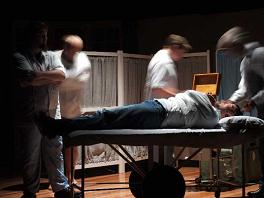Peak Civilization and the Winter of Our Disconnect

To be interested in the changing seasons is a happier state of mind than to be hopelessly in love with spring. ~ George Santayana
The appearance of springtime in North America may be more welcome this year than at anytime in recent history. The winter has been long, cold, and dreary-particularly in the Rust Belt where the devastations of housing foreclosures, unemployment, and the resultant blight have left a trail of human misery and degradation not seen since the Great Depression. Ten percent of the population of Ohio now relies on food stamps while hordes of domestic animals abandoned in foreclosed homes endure long and grotesque deaths from starvation.
For countless Americans across the nation, this winter has brought with it something far more distressing than brutal, bone-chilling temperatures-horrific, traumatic revelations that the American dream, neatly packaged and sold for decades, has become their worst possible nightmare. Should they happen to see on TV the guy from the Countrywide commercial greeting them with "Homeowners...", they are probably wondering why he hasn't been assassinated and at the very least wondering why Countrywide is still in business.
Something is festering in the psyches of the formerly middle class of this nation-something far more ominous than burgeoning public assistance and food stamp applications or mushrooming meth labs. If the subprime mortgage massacre had occurred in a vacuum, the dirty little secret might have been kept a bit longer, but juxtaposing it with Peak Oil, skyrocketing food prices, wacky weather and debilitating droughts, not to mention proliferating pink slips, it daily becomes embarrassingly obvious that Jim Kunstler was spot-on when he uttered his infamous declaration in the documentary, "The End Of Suburbia" that "the entire suburban project is the greatest misallocation of resources in the history of the world."


























